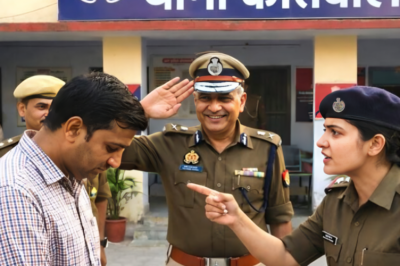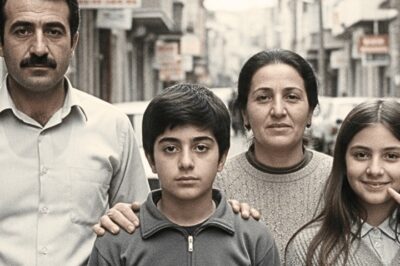Kerala nurse Nimisha Priya’s hanging in Yemen may be stopped
As the date of her execution draws near, the case of Nimisha Priya—a nurse from Kerala, India—has stirred deep concern and emotional responses across the country. Set to be executed in Yemen on July 16, 2025, Nimisha’s fate has become the center of a national and international debate on justice, mercy, and diplomatic intervention. The story of her life, her crime, and the legal pathways that may still offer her a reprieve present a complex narrative that goes far beyond headlines and courtrooms.
Nimisha Priya, a trained nurse from Palakkad district in Kerala, traveled to Yemen in search of better professional opportunities. Like many Indian expatriates working in the Middle East, she hoped to build a brighter future for herself and her family. In 2017, she entered into a business partnership with a Yemeni national named Talal. However, things quickly took a dark turn. According to her defense and family, Talal allegedly subjected Nimisha to financial exploitation and repeated sexual abuse. In a desperate attempt to escape his grip, Nimisha administered a sedative injection to Talal, which tragically led to his death. The authorities arrested her, and in 2020, she was convicted of murder and sentenced to death by hanging under Yemeni law.
As July 16 approaches, the tension surrounding her case has intensified. With only days remaining, her family and supporters are doing everything within their power to save her life. Multiple appeals have been made to the Government of India to intervene on her behalf. Despite several diplomatic efforts, no successful breakthrough has yet been achieved. Still, a ray of hope emerged recently when a petition was filed in the Supreme Court of India by the Save Nimisha Priya Action Council, an advocacy group dedicated to preventing her execution. The petition has brought renewed focus to the concept of “blood money,” a legal provision in Yemeni law that allows the family of a murder victim to forgive the perpetrator in exchange for financial compensation.
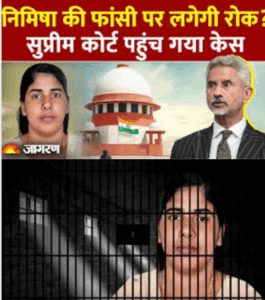
Senior advocate R. Basant presented the case before a bench comprising Justices Sudhanshu Dhulia and J.M. Bagh in India’s Supreme Court. The petition emphasized that under Yemeni law, there is still a legal avenue to save Nimisha: if Talal’s family agrees to accept blood money, the death penalty could be overturned, and Nimisha could be released or given a reduced sentence. The term “blood money,” or diyya, refers to a negotiated monetary settlement between the family of the deceased and the accused. This provision, deeply rooted in Islamic jurisprudence, allows for mercy within the framework of justice. The petitioners argue that if the Indian government steps in and facilitates negotiations, there may still be time to secure an agreement and save Nimisha’s life.
The Supreme Court has scheduled a hearing for July 14, just two days before the scheduled execution. This tight timeline underscores the urgency of the matter. The Court is being urged to direct the Indian government to actively engage in diplomatic efforts, arrange the required financial resources, and initiate direct communication with Talal’s family in Yemen. It is a race against time, and the outcome could define the future of Nimisha Priya and set a precedent for how such international cases are handled by Indian authorities.
Public opinion in India has largely rallied around Nimisha. The case has prompted intense debate on television, social media, and among legal and human rights circles. Many see her not as a cold-blooded killer but as a victim of systemic abuse who acted in desperation. Human rights organizations have highlighted the complexities of the case, calling for a deeper investigation into her allegations of abuse and the conditions under which she was tried and convicted. Critics argue that the trial in Yemen may not have afforded her full legal protections or taken into account the alleged abuse she endured.
While the Indian government has reportedly made multiple attempts through diplomatic channels, including outreach via the Ministry of External Affairs and the Indian Embassy in Djibouti (which oversees Yemen affairs), official statements have been sparse. The Indian Constitution limits the reach of domestic courts in foreign criminal matters, which is why intervention has largely been dependent on diplomatic negotiations rather than legal mandates.
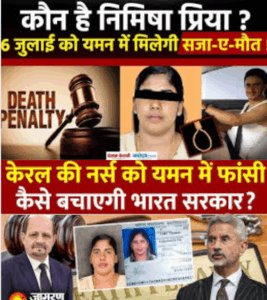
Adding to the complexity is the unstable political situation in Yemen, a country torn apart by civil war and humanitarian crises. These factors have made legal proceedings and diplomatic efforts extremely difficult, further narrowing the window of opportunity to save Nimisha. Nonetheless, the petition in India’s highest court has brought renewed urgency and a structured legal argument that could compel the government to act more decisively.
Nimisha’s mother and other family members have pleaded with the Indian government to intervene and help raise the blood money, if that is what it takes to save her life. According to some estimates, the amount demanded by the victim’s family may be substantial, but organizations and well-wishers in India have indicated readiness to contribute to the cause if a settlement can be negotiated. The Save Nimisha Priya Action Council has also raised awareness and financial support, hoping to mobilize enough resources in time.
The emotional and moral dimensions of this case cannot be overstated. On one hand, there is the undeniable fact that a life was lost. On the other, there is the broader context of alleged exploitation and the motivations behind Nimisha’s actions. It is a case that challenges the boundaries of legality, justice, and compassion. It raises urgent questions about how countries protect their citizens abroad, particularly women in vulnerable situations, and how diplomatic and legal systems interact in matters of life and death.
As July 16 approaches, the next few days will be critical. The Supreme Court’s hearing on July 14 may be the final opportunity for legal intervention. Much will also depend on whether the Indian government takes bold diplomatic action to initiate talks for a blood money settlement with Talal’s family. Whether or not this happens in time will determine the outcome of one of the most emotionally charged international legal battles involving an Indian citizen in recent years.
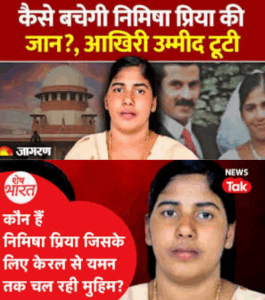
Nimisha Priya’s case is not just a personal tragedy—it is a reflection of the many Indian women working abroad who face exploitation and violence in silence. It also serves as a test for India’s commitment to protecting its diaspora and advocating for justice through diplomatic channels. Regardless of the final outcome, the case has ignited a much-needed conversation about legal reform, women’s safety, and the role of state support in cases involving international legal jeopardy. The hope, for now, is that humanity, justice, and diplomacy can come together in time to save her life.
Play video :
News
गरीब टीचर इलाज के बिना लौट रही थी… तभी डीएम ने व्हीलचेयर रोक दी — सच ने सबको सोचने पर मजबूर कर दिया
गरीब टीचर इलाज के बिना लौट रही थी… तभी डीएम ने व्हीलचेयर रोक दी — सच ने सबको सोचने पर…
अहंकार की वर्दी और स्वाभिमान का सैल्यूट: एक अनकही दास्तान
अहंकार की वर्दी और स्वाभिमान का सैल्यूट: एक अनकही दास्तान भाग 1: मधुपुर की गलियाँ और त्याग की नींव मधुपुर…
TEMİZLİKÇİ, PATRONUN ÇÖPÜNDE ŞÜPHELİ BİR ŞEY BULUR… VE HERKESİ KURTARIR!
TEMİZLİKÇİ, PATRONUN ÇÖPÜNDE ŞÜPHELİ BİR ŞEY BULUR… VE HERKESİ KURTARIR! . . . Temizlikçi, Patronun Çöpünde Şüpheli Bir Şey Bulur……
Mafya Patronunun Bebeği Dokunulduğunda Durmadan Ağlıyordu — Ta ki Bir Hemşire Akıl almaz Olanı Yapan
Mafya Patronunun Bebeği Dokunulduğunda Durmadan Ağlıyordu — Ta ki Bir Hemşire Akıl almaz Olanı Yapan . Mafya Patronunun Bebeği Dokunulduğunda…
Harp Okulu Skandalı Sınırdaki Yolsuzluk Çetesini Kadın General Bitirdi
Harp Okulu Skandalı Sınırdaki Yolsuzluk Çetesini Kadın General Bitirdi . . . Harp Okulu Skandalı: Sınırdaki Yolsuzluk Çetesini Bitiren Kadın…
Mart 1982’de Ankara’da bir aile iz bırakmadan kayboldu. 25 yıl sonra bulunan günlük her şeyi değişti
Mart 1982’de Ankara’da bir aile iz bırakmadan kayboldu. 25 yıl sonra bulunan günlük her şeyi değişti . . . Mart…
End of content
No more pages to load


